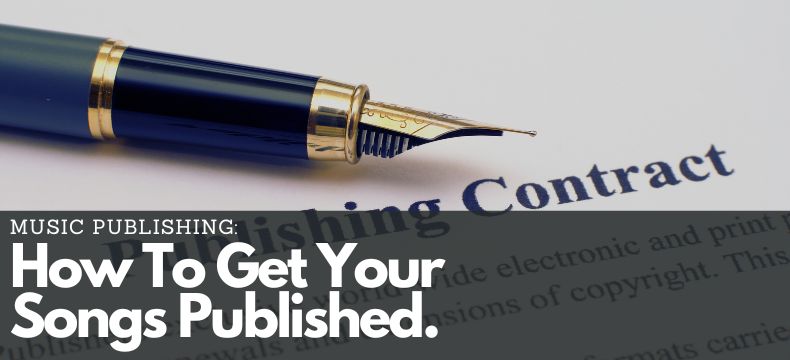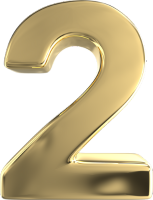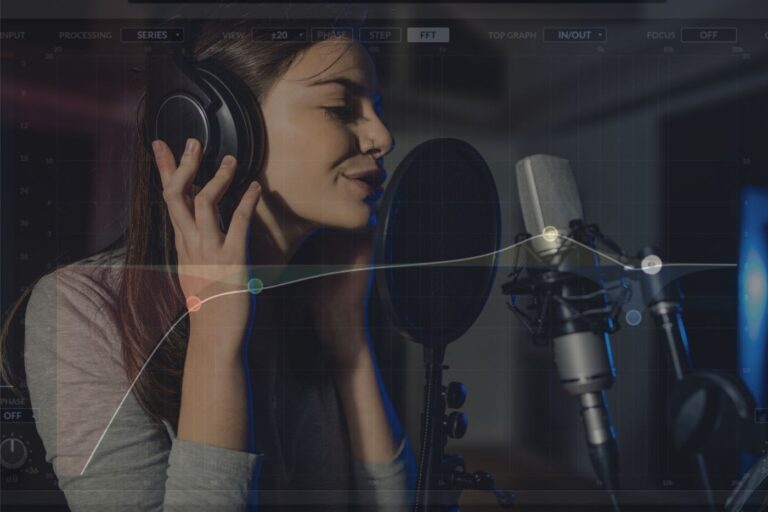Music Publishing: How To Get Your Songs Published (2025)

So you have talent, and you’ve written some fantastic songs. You’ve worked on your craft for years and now have a collection of what your peers and mentors around you think are hit songs.
Enter Music Publishing: How to Get Your Songs Published.
KEY TAKEAWAYS
One of a music career’s most exciting and rewarding aspects is seeing your original songs come to life and reach a wider audience. It’s even more exciting to see them generate income.
Earning money from your music validates your talent and efforts. This is the business of songwriting.
It’s not about the money, but it’s about the money.
One of my mentors, Ralph Murphy (RIP)
Independent artists and professional songwriters absolutely must become familiar with the ins and outs of music publishing in order to receive proper recognition and compensation for their work.
Taking the music business on like an entrepreneur is more important today than ever.
How To Get a Song Published That You Write
I will guide you through the process of getting your songs published; we’ll cover everything from copyright protection and performing rights organizations to sync licensing and publishing deals.
I’ll also walk through your options for self-publishing and the steps involved in going for a publishing deal with an established publisher.
Whether you are an artist just starting to pen your own songs, an emerging songwriter aiming to create tracks for others to perform, or an experienced pro seeking a publishing deal, this all-inclusive guide will show you invaluable insights and advice for navigating the music industry.
Fundamentals of Music Publishing
Before we get into the specifics of getting your songs published, it’s crucial to grasp the fundamental concepts of music publishing, copyrights, and royalties: At its core, music publishing is all about managing and protecting the rights of songwriters and composers, ensuring they receive compensation for their original music.
Copyright
Copyright law grants the creators of the music exclusive rights to their work; reproduction, distribution, and public performance are all covered by this protection. The copyright for a new piece of music is automatically owned by its creator.
This means you just created a copyright you own when you finish writing a new song in your PJs and record a rough demo on your phone at 3 am. Proving that involves more than that, but in principle, that’s it.
The Two Types of Music Copyright
Copyright protection covers two distinct aspects of music: the composition and the sound recording.

The Composition
The composition copyright refers to a song’s underlying music and lyrics, typically owned by the songwriter or composer.

The Sound Recording
The sound recording (often also referred to as the master recording) copyright is tied to a specific recorded version of that song. It’s usually owned by the artist, publisher, or record label, depending on the agreements it was made under.
Understanding the difference between these two types of copyright is crucial for navigating the complexities of music licensing, royalties, and contracts, ultimately ensuring your rights are protected and your music is fairly compensated.
Publishing Rights
Once you create a new song or composition, you and any co-writers automatically own the song’s publishing rights.
Based on industry-standard practices over the years, imagine that song is split into two halves:

The First 50% Half
Owned by the writer or writers.

The Second 50% Half
Tthe business or publishing half. When you decide to shop around for deals on your song, the business half is what’s under negotiation.
Never, ever sign away your writer’s half (well, there are a few possible exceptions for this, but that’s a topic for another article!)
Performance Royalties
Royalties are payments collected for songwriters and composers when their copyrighted music is used in various ways: Live performances, radio stations, streaming services, and TV shows are among the most typical uses.
Performing rights organizations (PROs) like ASCAP, BMI, and SESAC represent the songwriters, composers, and publishers, negotiate the royalty rates, and collect these performance royalties by monitoring the usage of their music and distributing the appropriate payments.
Performance royalties can add up to a very respectable income! It might seem like you’re working against overwhelming odds initially, but you just have to keep working hard consistently and stay persistent.
Also, don’t stop there if you think you just wrote a hit song. Write a hundred more! Each one of those songs is an asset that will generate royalties once it’s out in the world. And the PROs will collect those royalties for you worldwide.
By understanding these critical elements of music publishing, you’ll be better equipped to navigate the industry and ensure you receive the recognition and compensation you deserve for your creative efforts.
Performances of the master recording also can generate neighboring rights royalties, depending on the platform and country it’s broadcasted in.
Mechanical Royalties
Mechanical royalties are not discussed as often as performance royalties. They are generated as compensation to copyright holders for the reproduction of their music.
The name comes from when the process was mechanical, ie. someone pressed a vinyl record with your music on it.
Nowadays, most mechanical royalties relate to streaming. Whenever a streaming music platform like Spotify or Apple Music chooses a song to stream, they trigger both performance and mechanical royalties:
- The listener doesn’t own the track they are listening to; therefore, the stream qualifies as a public performance of the music.
- And since the only way to stream the track is to reproduce the underlying composition, it also qualifies for mechanical royalties.
The Harry Fox Agency primarily collects mechanical royalties in the U.S.
Mechanical royalty rates are so low that earning meaningful money takes a catalog of big hits. That’s probably why we typically only hear about performance royalties.
The Path to Self-Publishing Your Music
For many independent artists and songwriters, self-publishing is an appealing route when entering the music industry.
This method allows you to retain complete control over your songs and earn higher royalties since you own the rights to 100% of them, and it’s a great way to start monetizing your catalog.
To successfully self-publish, you must register your music with a performing rights organization, which will collect royalties on your behalf.
Then distribute your music across digital platforms like Apple Music, Spotify, and Amazon.
Promoting on social media and contacting music supervisors for sync licensing opportunities can also expand your reach and income potential.
The Role of Music Publishers
So if you can self-publish, what would you need a publishing company for?
Music publishers play a crucial role in the music industry by managing the business side of songwriting. They promote, pitch, and license your music while ensuring you receive proper compensation. Collaborating with a music publisher can help launch your great song into a hit.
Let’s say you sign a publishing deal with an established music publisher for your new song. The publisher pitches the song to big-name artists and lands it on the new Katy Perry record. Would you have been able to make that deal yourself?
The experience, connections, and leverage an experienced music publisher brings cannot be underestimated.
Securing a Music Publishing Deal
A music publishing deal can offer numerous benefits for emerging and established songwriters.
These deals typically involve partnering with a music publishing company, which will manage your copyrights, pitch your songs to artists and music supervisors, and collect royalties for you.
There are different types of publishing deals, including co-publishing and administration deals.
To secure a publishing deal, you must have a strong track record of great songs and consistently demonstrate your ability to write hits.
Working with an entertainment attorney to review agreements before signing is also a good idea.
Building Relationships in the Music Business

As with any industry, networking and forming solid relationships are essential for success in the music business.
Rather than relying on unsolicited attempts to approach publishers, focus on building connections with other musicians, songwriters, producers, and industry professionals. If you’re an artist, finding a music manager can help too.
Attend industry events, participate in songwriting groups, and engage in local music scenes to meet like-minded individuals.
Establishing a presence on social media and sharing your work can also help you connect with others in the music world.
By fostering these relationships, you’ll increase your chances of getting your songs published and noticed by the right people.
Navigating the World of Sync Licensing
Sync licensing is something a publisher negotiates for you if you’ve signed a publishing deal, but you can also do it as a self-published artist. It involves placing your music in TV shows, films, commercials, and video games.
To secure sync licensing opportunities, you must create high-quality recordings of your songs and ensure they are registered with a performing rights organization. Networking with music supervisors, attending industry events, and joining sync licensing-focused communities can help you stay informed about potential opportunities.
Additionally, working with a reputable sync licensing agency can increase your chances of landing placements and generating income from your music.
Steps to Self-Publish Your Music

1. Join a Performing Rights Organization (PRO) and register your songs with them
As a self-published songwriter, it’s crucial to register your works with a PRO like ASCAP, BMI, or SESAC to collect performance royalties from radio stations, live shows, and streaming services.
2. Register with SoundExchange
Sign up with SoundExchange to collect digital performance royalties for using your sound recordings on digital platforms such as satellite radio and internet radio stations.
3. Copyright your music
Protect and register your original music with the United States Copyright Office or your local copyright authority, ensuring you have legal proof of ownership.
4. Distribute your music
Use digital distribution platforms like DistroKid, TuneCore, or CD Baby to make your songs available on popular streaming services like Spotify, Apple Music, and Amazon Music.
5. Network and promote
Engage with your local music scene, attend industry events, and use social media to build connections with other musicians, industry professionals, and potential fans.
6. Monetize your music
Explore opportunities to generate income through sync licensing fees, selling digital sales or physical copies, and performing live shows.
Steps to Seek Out a Publishing Deal
1. Build your portfolio
Develop a robust catalog of well-crafted songs that showcase your songwriting abilities and unique style. Focus on creating diverse materials to demonstrate your versatility as a songwriter.
2. Create a professional demo
Invest in high-quality recordings of your best songs, ensuring your music is presented to prospective publishers in the best possible light. Demo recordings have to sound polished like a final release quality product.
3. Network with industry professionals
Attend music conferences, workshops, and local events to expand your network, increasing your chances of connecting with publishers or other professionals who can introduce you to the right people.
4. Co-write with signed writers
Collaborate with songwriters who already have publishing deals. This can provide valuable exposure to your work and help you build relationships with publishers.
However, keep the business separate from the actual creative process; creativity plummets when someone brings up business in a writing session. The songwriting process should be respected and kept separate.
Have the goal of the collaboration agreed on before the session, and preferably get a written agreement on the co-writing splits afterward.
5. Stay active in the music community
Participate in local songwriting circles, attend industry events, and showcase your music at open mics or other live venues to increase your visibility and credibility in the music world. Keep an eye on your local scene and when you hear about interesting new artists, go to their shows and introduce yourself.
6. Be patient and persistent
Securing a publishing deal can be challenging and time-consuming. Stay persistent, refine your craft, and remain open to feedback and opportunities.
7. Work with an entertainment attorney

If you receive an offer for a publishing deal, consult an entertainment lawyer to help you navigate the contract, negotiate the terms, and protect your best interests. Attorneys also often have relationships with publishers and can make introductions.
Note About Using AI Tools
In today’s day and age we’re seeing rapid development of AI tools to aid in music composition, lyric writing and music production workflows.
These tools can be exciting and helpful, but keep this in mind – there’s a fine line where the AI feature is just an aid for a tool you’re using, and when it’s actually adding creative input.
If the AI tool is adding any creative input at all, now you’re risking exposing yourself to legal issue when it comes to signing publishing deals. Many publishers specifically want you to declare that no AI was used to create the music composition or lyrics. There are no preseding court cases yet on AI tools as part of the creation process, and I don’t recommend becoming the target of one of them!
By all means, use AI tools to help with the workflow where ever approriate, but play it safe and do the actual composing and writing youself.
Frequently Asked Questions
What is a performing rights organization (PRO), and why do I need one?
A performing rights organization, like ASCAP, BMI, or SESAC, helps songwriters and composers collect performance royalties when their music is played publicly, on the radio, or streamed online.
Joining a PRO is essential for ensuring you receive the compensation you’re entitled to for using your music.
How do I copyright my songs?
To protect your original music, you must register your songs with the United States Copyright Office or the copyright office in your country. This process will prove your exclusive rights to your work and help protect it from unauthorized use.
What are mechanical royalties, and how do they differ from performance royalties?
Mechanical royalties are payments to songwriters and composers when their music is reproduced or distributed through physical or digital sales.
Performance royalties are earned when a song is performed publicly, broadcast on the radio, or streamed online.
Both types of royalties are important income sources for songwriters.
What is a co-publishing deal, and how does it differ from an administration deal?
A co-publishing deal involves partnering with a music publishing company that will manage your copyrights, pitch your songs, and collect royalties while sharing a percentage of your income.
In an administration deal, the publisher will handle the same responsibilities but typically takes a smaller percentage of the income, leaving you with a larger share.
Do I need an entertainment attorney to review my publishing contracts?
Working with an entertainment attorney when entering publishing agreements is a good idea. They can help ensure the terms are fair, protect your best interests, and navigate any complex legal issues that may arise.
What is co-writing, and why should I do it?
Co-writing is when two or more people write a song together. It’s a great way to write more high-quality songs, as the songwriters can feed off each others’ inspiration and benefit from each person’s talents; some may be better at lyrics while others write better melodies. When combined, the end results can be incredible.
If you look at pop music history, many of the biggest, evergreen hits were co-written by two or more people. Countless famous songwriter partnerships generated an incredible catalog of hit songs over their careers.
What is sync licensing, and how can it benefit my music career?
Sync licensing involves placing your music in TV shows, films, commercials, and video games. It can be a lucrative revenue stream for songwriters and help increase exposure for your music.
How can I promote my music on digital platforms?
To promote your music on digital platforms like Apple Music, Spotify, and Amazon, you must work with a digital distribution service to help you upload and manage your music.
You can also use social media, email marketing, and other online channels to promote your music and engage with your audience.
How can I improve my chances of placing my songs with significant artists or in TV shows and films?
Focus on creating high-quality songs and recordings of them, networking with industry professionals, and pitching your music to music supervisors and publishers.
Additionally, joining songwriting groups and attending industry events can help you build relationships and stay informed about potential opportunities.
Also, keep in mind how universal the song’s message is; a song title or lyric that mentions specific locations, people, or time period limits how many potential licensing spots the song could fit in. A lyric can be just as good but talks about those aspects more broadly.
How important is having a professional demo or finished product when pitching my music to publishers or supervisors?
A professional demo or finished product is essential when pitching your music, as it showcases your skills and gives the listener a clear understanding of your song’s potential. High-quality recordings can significantly impact landing placements or securing publishing deals.
Conclusion
This may all seem a little overwhelming and not very structured. And you’d be correct in thinking that!
The music industry is all built on relationships; 99% of the time, there is no ‘regular job’ type of position you can apply for (at least not knowing the right people). It’s all about working hard on your craft, creating your own network of music professionals in the industry, and creating the path for your career.
With the proper knowledge and approach, it is possible to navigate all of it successfully and find the best path for your music career.
Whether you choose to self-publish or secure a publishing deal, it’s crucial to understand the ins and outs of the music business, protect your copyrights, and build strong relationships within the industry.
As you take steps to push forward in your career in music, remember that hard work, persistence, and dedication to honing your craft will help you make the most of your talents and achieve your goals as a songwriter or recording artist.
My one other tip applies to life in general, but especially to your career chances in the music business:
Enjoy the journey and be polite and respectful to others.
People are drawn to fun, positive, respectful, and energetic people who are enjoyable and easy to work with. Spark inspiration and creativity in others! I can tell you that, without exception, those are the types of people who always get called back for more.





